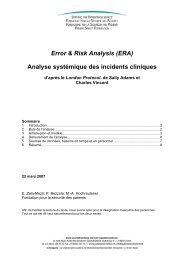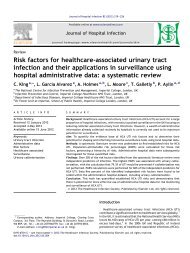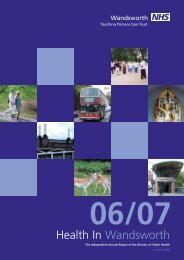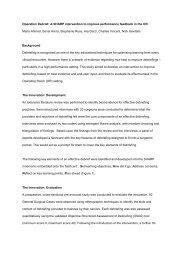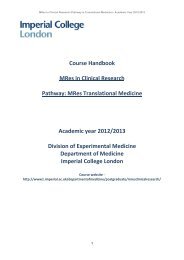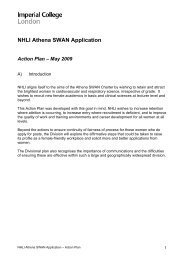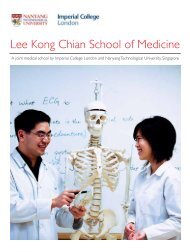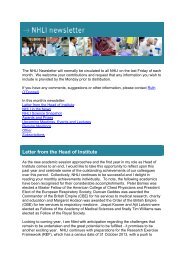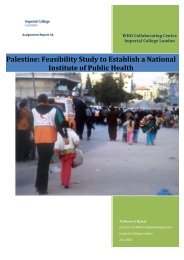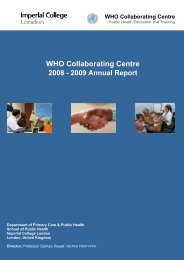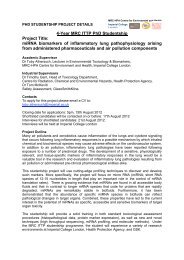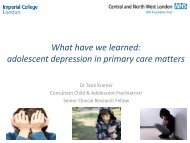QOF Plus Year 1 - Imperial College London
QOF Plus Year 1 - Imperial College London
QOF Plus Year 1 - Imperial College London
You also want an ePaper? Increase the reach of your titles
YUMPU automatically turns print PDFs into web optimized ePapers that Google loves.
Appendix 1Background to the <strong>QOF</strong>+ development processComposition of the <strong>QOF</strong>+ development groupThe <strong>QOF</strong>+ Development Group was based at NHS Hammersmith and Fulham and at the eHealthunit of the Department of Primary Care and Social Medicine at <strong>Imperial</strong> <strong>College</strong> <strong>London</strong>.Members were drawn from the PCT, primary care, public health and the field of healtheconomics, and included the Local Director of Public Health, PCT Head of Primary Care, PCTInterim Director of Primary Care, Medical Director and Professional Executive Committee (PEC)Chair, and members of the academic Department of Primary Care and Social Medicine at <strong>Imperial</strong><strong>College</strong> <strong>London</strong> (including local General Practitioners and Consultants in Public Health).Process employed by the <strong>QOF</strong>+ development groupCommunication within the group took place through weekly face-to-face meetings, through emailand through telephone contact throughout the development process from June 2008 toNovember 2008. Throughout this process, frequent contact was made with local stakeholdersdrawn for the PCT and from primary care.Approach to development of the schemeDiscussions with national and international experts in health care quality improvement took placethroughout the development of the scheme, including two teleconferences with Professor HelenLester and Professor Richard Baker. A number of issues were considered further during theseteleconferences, which provided valuable insights which helped inform further development of<strong>QOF</strong>+ indicators and the training and support package, as well as the development of theconsultation process with local stakeholders including those from primary care. These issues aresummarised below:The approach for further incentivising existing <strong>QOF</strong> indicators was discussed includingwhether to raise the upper threshold or reward any improvement. HL felt that rewardingimprovement may not be such an important objective in the context of recent researchwhich suggests that following the introduction of <strong>QOF</strong>, health inequalities have narrowedamong the practices serving more deprived patients. RB suggested the possibility ofhaving both schemes within <strong>QOF</strong>+, which could be tailored to individual practices, as‘one size does not fit all.’ The <strong>QOF</strong>+ Development Team highlighted that if only theachievement of raised upper thresholds was rewarded, less well performing practiceswould be provided with additional support by the PCT in terms of training etc whichwould be free to the practice. RB then brought up the question of “How do you getchange to happen?”, and raised concerns that if targets were set too high, poorlyperforming practices would have low motivation to change. However as out ofapproximately 30 local practices, only a small proportion were performing less well (andwould be provided with further support by the PCT through other means) RBacknowledged that the approach of rewarding improvement through <strong>QOF</strong>+ may not beas important.100



